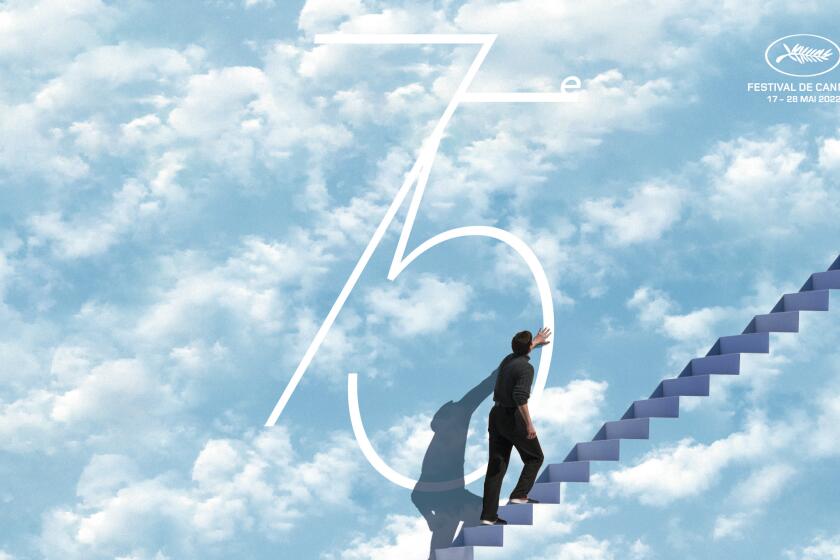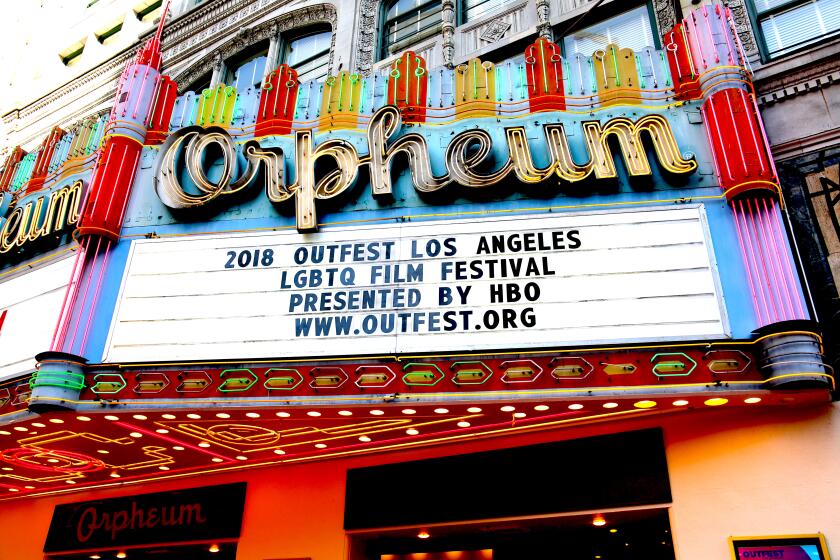The underappreciated James Gray returns to Cannes with a memoir of ’80s New York
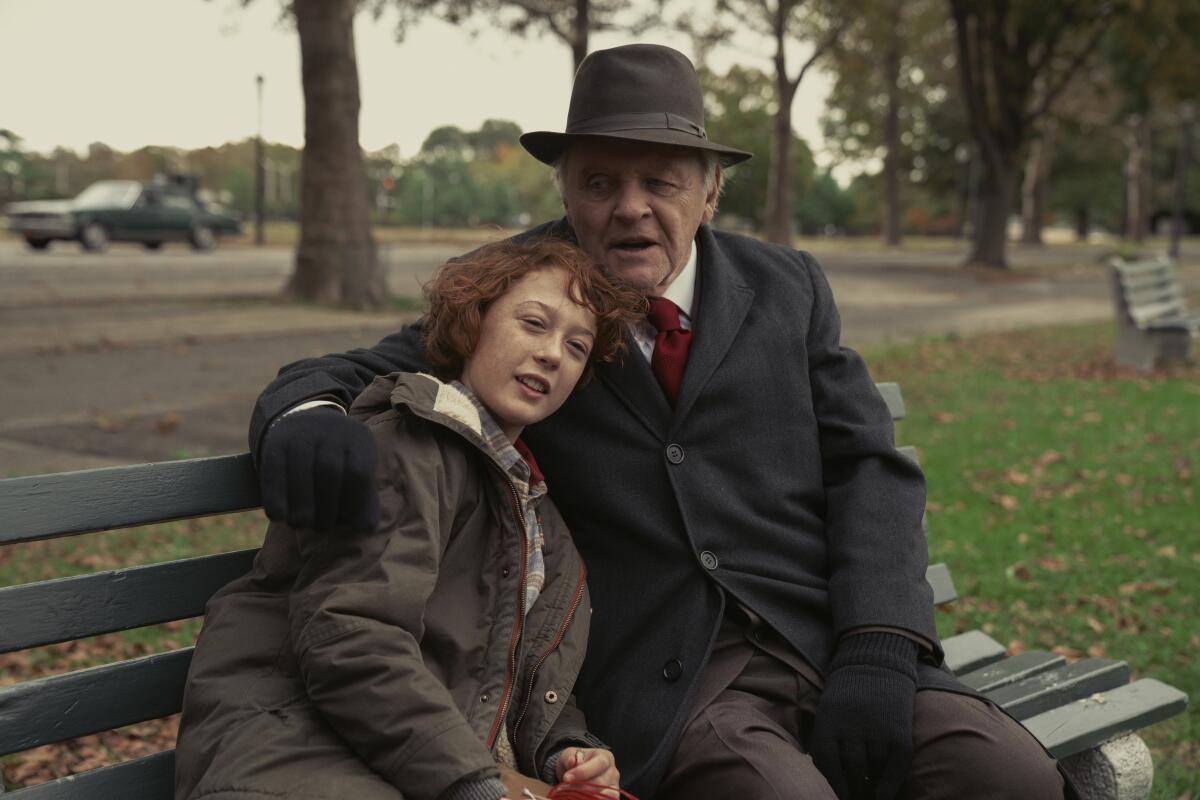
- Share via
Cannes, France — The title of James Gray’s “Armageddon Time,” which premiered in competition Thursday night at the 75th annual Cannes Film Festival, is a wry reference to a comment made by Ronald Reagan during his first presidential campaign: “We may be the generation that sees Armageddon,” he said in a conversation with the televangelist Jim Bakker. It was one of Reagan’s many invocations of the endtimes both before and during his presidency, to the alarm of many, including religious leaders who felt he was using the Bible to justify and precipitate a nuclear war with the Soviet Union.
We see that televised moment through the wide, naive eyes of Paul Graff (Banks Repeta), a sixth-grader growing up in a Jewish household in Queens, N.Y., and a stand-in for the young Gray himself. The distance and specificity of the movie’s 1980 setting serve as a reminder, troubling as well as reassuring, that every era has its false doomsday prophets, and every generation imagines it might be humanity’s last. It’s not the only way in which history resonates anew in “Armageddon Time,” a coming-of-age drama that feels both tenderly observed and acutely, rigorously pessimistic about its moment, as well as ours.
The present-day catastrophe of Russia’s war on Ukraine throws inevitably somber shadows over the movie’s lightly sketched Cold War time frame, as well as the fact that Gray is of Ukrainian Jewish descent. (That detail is briefly noted when Paul’s beloved grandfather, played by a moving if miscast Anthony Hopkins, recalls an antisemitic attack on his own grandparents in their Ukrainian hometown.) And despite its richly detailed rendering of graffiti-smeared subway trains, dilapidated public-school classrooms and the Graffs’ dimly lit Flushing row house, “Armageddon Time” sometimes ceases to feel like a period piece at all, insofar as it touches on white privilege, Black punishment, Republican fearmongering, the Trump family and the many, many forms and gradations of American injustice.
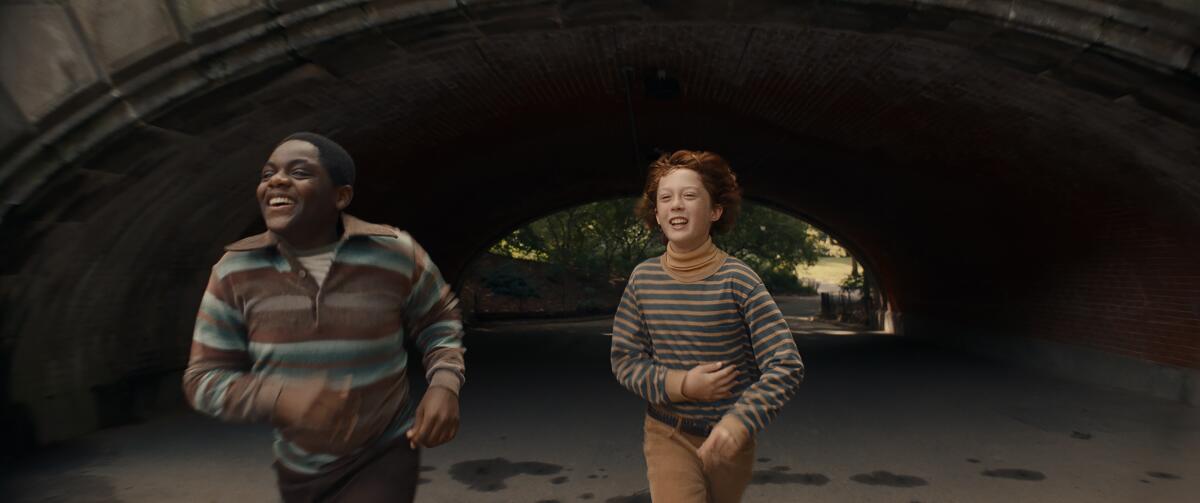
The story centers on the close friendship that forms between Paul and Johnny (Jaylin Webb), a Black classmate and fellow misfit. Together they ditch a school field trip, complain about their teacher, smoke a joint in the lavatory and dream big dreams. (Paul wants to be a famous artist; Johnny longs to work for NASA.) Their bond marks them as equals, even as their personal circumstances do the opposite. Suffice to say that Paul is slow to realize the advantages he has over Johnny, including a mother (Anne Hathaway) who’s active in his school district; a father (Jeremy Strong) who earns a solid living as a plumber; and a close-knit extended family that’s a fount of warm laughter, memorable stories and grave warnings never to forget the lessons of history. Paul’s family is also a fount of casual anti-Black racism, an irony that exemplifies the script’s layered understanding of hypocrisy and privilege.
“Armageddon Time,” which will be distributed by Focus Features in the U.S., marks a homecoming for Gray in more than one sense; after his recent treks to the Amazon in “The Lost City of Z” and the outer reaches of the solar system in “Ad Astra,” he has finally returned to the New York City of his childhood and his earlier films. The last movie he set in New York was his 2013 period drama, “The Immigrant,” whose story finds a resonant echo here when Paul’s grandfather reminisces about the family’s own passage through Ellis Island.
After three years away, Times critic Justin Chang returns to the world’s grandest and most important film festival — and shares what he’s most looking forward to.
Coincidentally, “The Immigrant” was also Gray’s last movie to screen at Cannes, a festival that has been both kind and unkind to this filmmaker over the years. This is the place where Gray, an underappreciated figure in the U.S., cemented his passionate following among French critics and cinephiles, many of whom regard him as an heir to great American auteurs like Martin Scorsese and Francis Ford Coppola. (France has always prided itself on having the foresight to appreciate American culture in ways that Americans themselves cannot; just ask Clint Eastwood.)
Even still, none of Gray’s four previous movies selected for the prestigious Cannes competition — “The Yards,” “We Own the Night,” “Two Lovers” and “The Immigrant” — has ever left the festival with so much as a single prize. That’s partly because juries sometimes assume a starry American movie doesn’t need the extra recognition, and also because Gray’s resolutely old-fashioned classical storytelling can draw indifference and scorn as well as admiration. I still remember the ugly boos that greeted “We Own the Night” and “Two Lovers” at their first Cannes press screenings in 2007 and 2008, respectively.
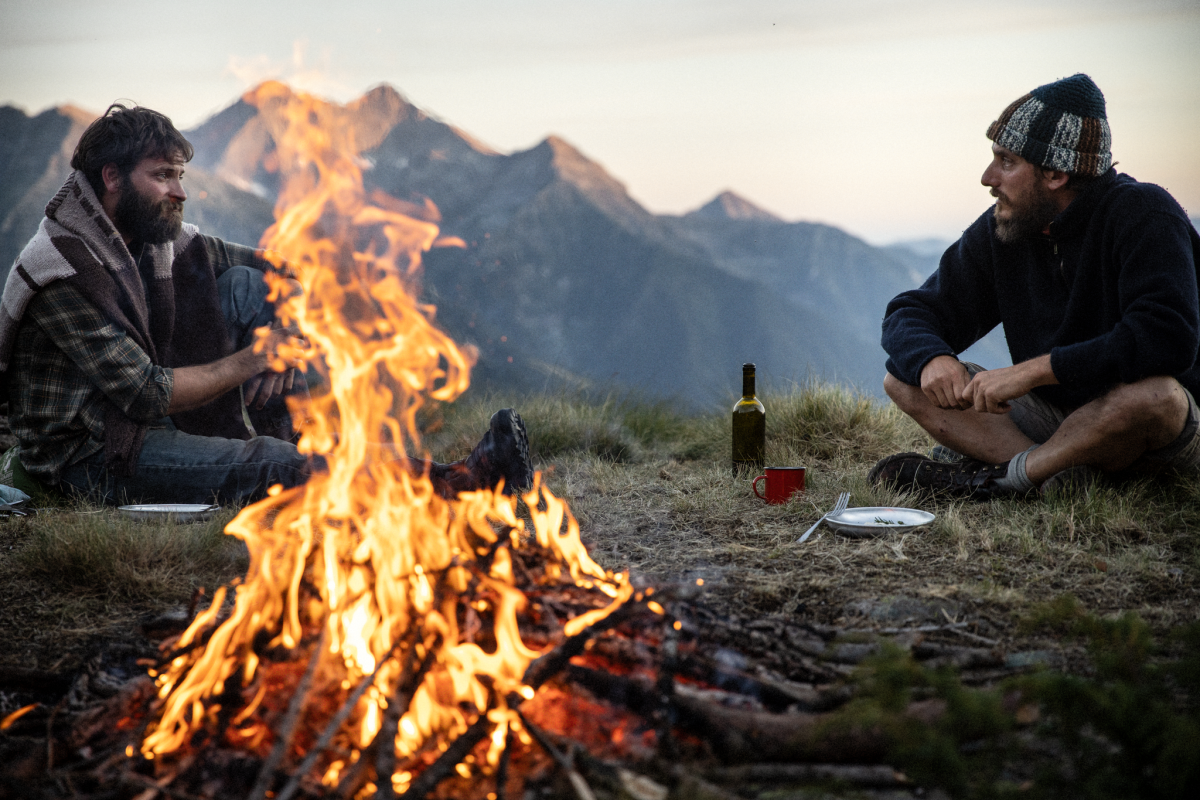
It remains to be seen whether “Armageddon Time” finds any love from this year’s competition jury, which is being presided over by the French actor Vincent Lindon. These are still early days for this 75th annual edition of the festival, though there have already been a few early highlights. One of them is “The Eight Mountains” (“Le Otto Montagne”), a beautifully filmed competition entry from the Belgian filmmakers Felix van Groeningen (“The Broken Circle Breakdown,” “Beautiful Boy”) and Charlotte Vandermeersch. Adapted from Paolo Cognetti’s bestselling novel, the movie charts the decades-long friendship between Pietro and Bruno, who meet as 11-year-old boys one summer in Grana, a small mountain village in northwestern Italy.
For the Turin-raised Pietro, these mountains, looming majestically in Ruben Impens’ nearly square compositions, are a gorgeous, glorious retreat. For Bruno, raised by local farmers and cheesemakers, they’re the only home and world he’s ever known. While both characters are played by different actors at different ages, most of the movie takes place when they’re in their 30s, as Pietro (Luca Marinelli) struggles with wanderlust, a literary calling and the emotional void left by his late father (Filippo Timi). Notably, his father spent more time in his later years with Bruno (Alessandro Borghi) than with his own son, a painful detail that both complicates and enriches the young men’s friendship.
As a story about two boys from vastly different families, classes and worlds, “The Eight Mountains” would make a fitting double bill with “Armageddon Time,” if also a long one, since Van Groeningen and Vandermeersch’s movie runs nearly 150 minutes. I think it earns just about all of them, given how gradually and perceptively it tracks its characters’ journey, as friends and individuals. This is the rare movie that understands how tied we are to the physical and psychological spaces of childhood, how our families and the traditions they raised us with can be both nurturing and limiting. More than anything, it brings a little-seen world to life with an almost palpable physicality, even as it reminds us that to live and work with one’s hands — to milk a cow, to build a house, to scale a mountain — is for some merely a romantic ideal and for others an implacable reality.
More to Read
Only good movies
Get the Indie Focus newsletter, Mark Olsen's weekly guide to the world of cinema.
You may occasionally receive promotional content from the Los Angeles Times.
